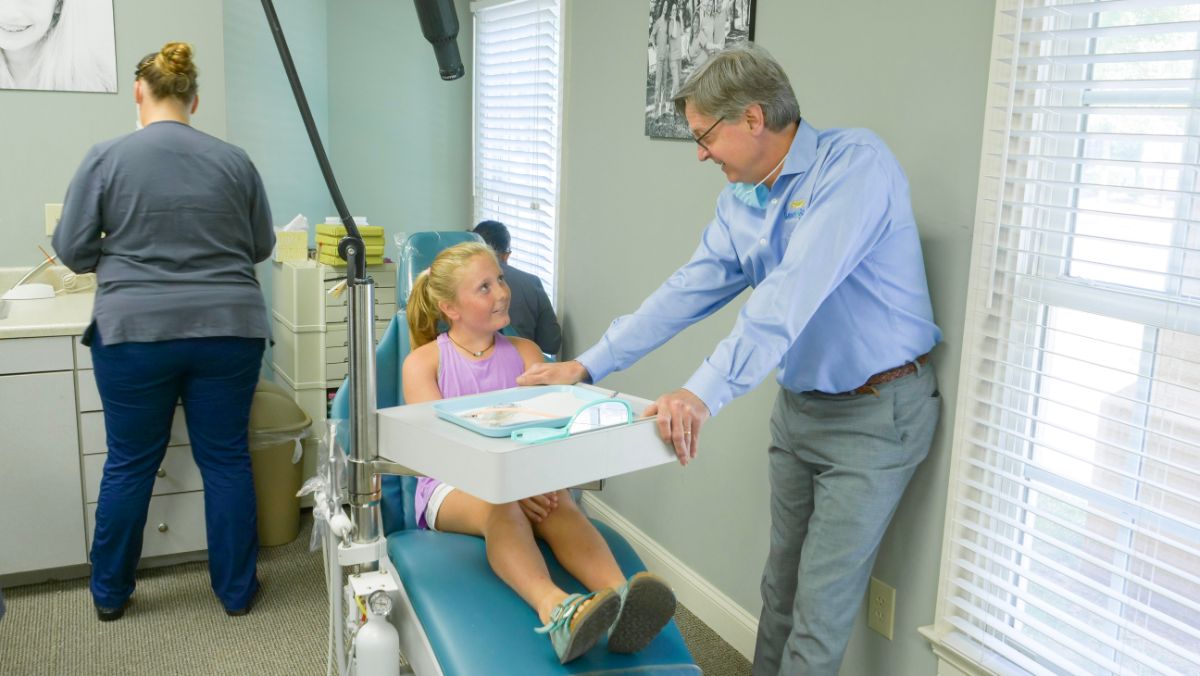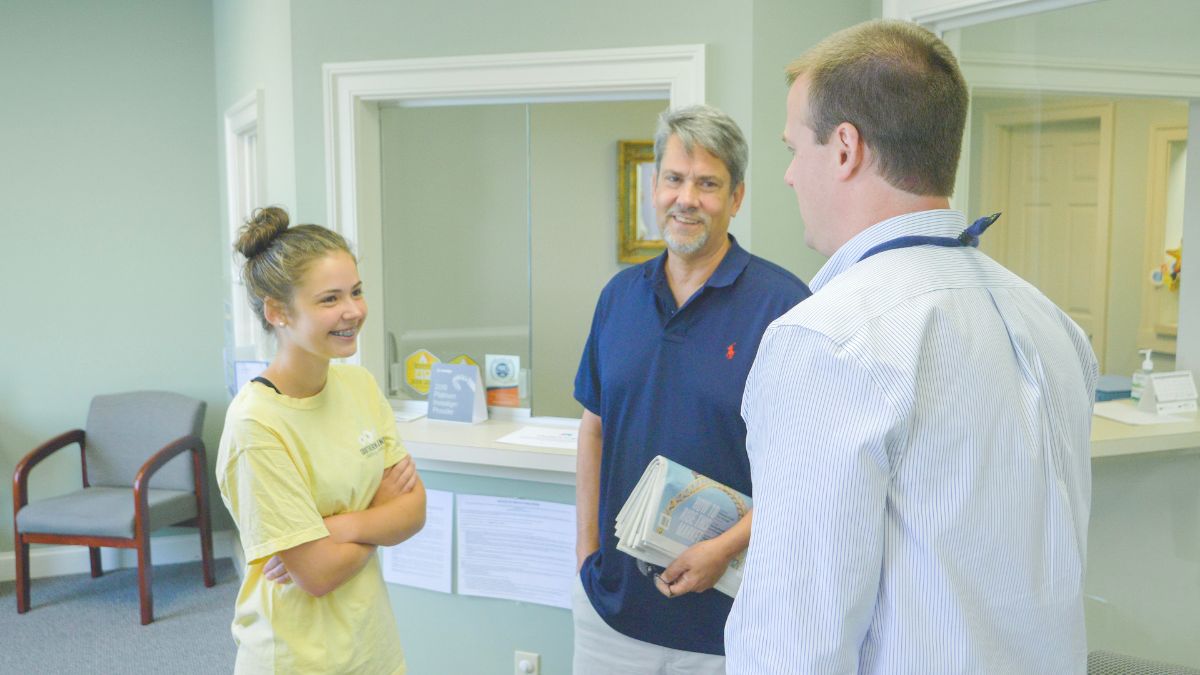Hamer & Glassick Orthodontics has been making families smile for 60 years here in the Charlottesville and Crozet communities, so we’ve seen our fair share of patients come through the door. Whether they’re in braces, clear aligners, or some other appliance, one of our most important tips for achieving a healthy smile is to find a dental hygiene routine that works and stick to it! When patients don’t take good care of their teeth and gums, it makes our job harder—poor oral health can interrupt progress and increase the total treatment time.
While orthodontic patients need to be especially vigilant about proper brushing and flossing, it’s a good idea for everyone to examine their dental hygiene occasionally. Recommendations change from time to time, and there may be something you’re missing. Even if you do pay close attention to your oral health, you could have some bad habits that can affect your smile! Keep reading below to learn more about some of the worst ones and how breaking them can give you a happier mouth and healthier teeth.
Not enough effort when it comes to oral hygiene
Doing a quick brush a couple of times a day is better than nothing, but your dental hygiene routine really should include more than this baseline! Take your toothbrush, for example. You may think that firmer bristles are better for thoroughly cleaning the teeth, but they can actually irritate the gums and may lead to sensitive teeth, especially for older adults. Because our gums tend to recede as we age, the roots become exposed and we may experience increased sensitivity. A soft-bristled toothbrush will provide extra comfort and better results, especially when you use gentle strokes to clean your teeth and gums.
We recommend brushing with fluoridated toothpaste at least twice a day for two minutes each time and flossing each night before bed. This will go a long way toward removing food debris and plaque, keeping your teeth clean and reducing your chances of developing tooth decay. Be sure to replace your toothbrush every 3-4 months as well, or sooner if you have a cold or any other illness. You can also use antimicrobial and fluoride mouthwashes to further eliminate the types of bacteria that cause bad breath and gum disease.
Crunching ice and chewing on other objects
Crunching on ice is a common habit, and it may seem like a perfectly harmless one. However, the freezing temperature and tough texture are enough to cause microscopic cracks in the surface of the enamel, which can lead to several other dental issues given enough time. Biting down on ice the wrong way can even fracture your teeth! Ice isn’t the only culprit here, though. Popcorn kernels and fruit pits can also put extra stress on the teeth and occasionally lead to fractures. To keep your smile safe, be mindful about what you put in your mouth and aware of what you’re biting down on.
If you deal with boredom or the need for distraction by chewing on your pencils, pen caps, or fingernails, you may want to rethink this habit. Over time, it can chip away at your tooth enamel and irritate the soft tissue inside the teeth. If this is a problem for you, try giving your mouth something else to do, like chewing sugarless gum or snacking on something with a satisfying crunch. Carrots, celery, or apple slices are a healthy substitute and just happen to be good for your teeth!
Grinding your teeth
Tooth grinding, also known as bruxism, is the involuntary grinding of the teeth outside of normal chewing, swallowing, or speaking movements. There are several possible causes for this, which can include:
- stress and anxiety
- medications
- certain medical conditions
- genetics
- misalignment between the teeth and jaws
- an abnormal bite
- missing or crooked teeth
Frequent grinding of your teeth can cause interrupted sleep, chronic headaches, and jaw pain. It’s also capable of wearing down the enamel of your teeth if it’s not treated, eventually exposing the much softer dentin inside. This may result in tooth sensitivity, with symptoms ranging from mild to intense. Some may even be long-lasting, depending on the severity of the problem.
There are several options for dealing with tooth grinding. Many of these solutions will help prevent any further damage and also treat any damage that’s already present. Reducing stress, treating anxiety, and addressing any dental or orthodontic issues can often have a positive effect on tooth grinding, along with proactive treatment like wearing a mouthguard overnight.

Using your teeth as a tool
You’d be surprised at what we’ve seen teeth used for over our years in orthodontics! Tearing open bags, ripping tags off clothing, uncapping bottles—anything like this you could think of, we’ve probably witnessed or at least heard about. Many people do this without even thinking about it, but using your teeth as tools can be really rough on them! It only takes one wrong move for a tooth to be traumatized, chipped, or even fractured.
Try to stop and think when you’re about to use your teeth for something that could be harmful. You can make this easier by keeping simple tools like scissors, nail clippers, and pliers in convenient places around the house so you aren’t tempted to do the dirty work with your teeth! Reducing the amount of stress on them will help keep your teeth strong for years to come.
Improve your oral health with Hamer & Glassick Orthodontics
Dr. Hamer and Dr. Glassick are experienced orthodontists who have been trained to diagnose and correct a wide variety of orthodontic issues. Identifying harmful oral habits is an important part of that process, but you don’t have to be an orthodontic patient to benefit from the advice we’ve highlighted above!
If you’re in Charlottesville, Crozet, or the surrounding areas and need some help breaking a destructive oral habit, our expert team is here to help! Get in touch today to schedule a FREE consultation in one of our conveniently located offices and take the first step towards stronger teeth and a healthier smile.
